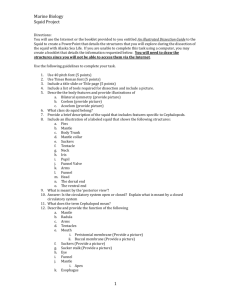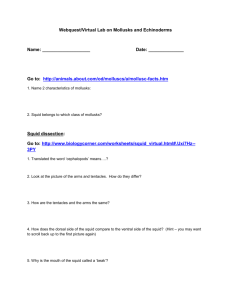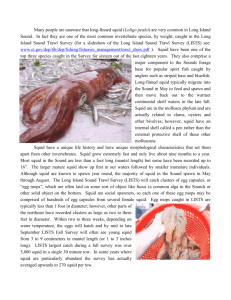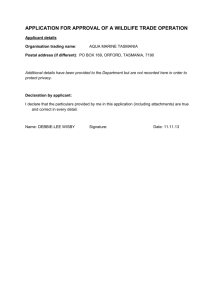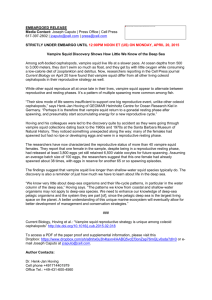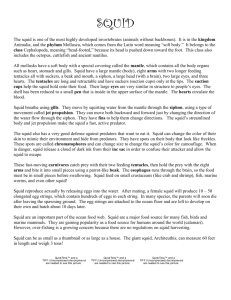upside-down
advertisement
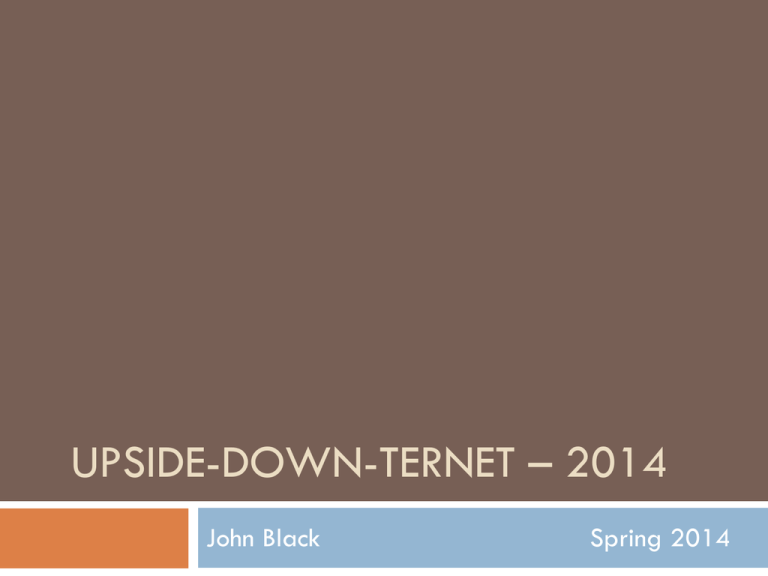
UPSIDE-DOWN-TERNET – 2014
John Black
Spring 2014
Scamps
Web Basics
Client is the Browser (usually)
A web server is a machine that listens on port 80
(usually) and communicates via TCP/IP
Proxies
A proxy sits between the
users and the network
A web proxy processes
inbound/outbound web traffic
Filtering (malware, forbidden
content)
Caching (efficiency)
Monitoring (bandwidth
charges)
Limits (no Facebook except at
lunchtime)
Reverse Proxies
Sometimes the server side uses them
Load
balancing
SSL optimization
Compression
Hiding internal LAN
Squid Proxy
The most popular open-source proxy is
called Squid
Squid
was developed at CU in the mid-90s
Squid is a caching web proxy running via
TCP on port 3128 (usually)
Incoming http requests are checked to see if
they’ve been served before and are
cacheable
If
so, Squid serves the request from its cache
If not, Squid serves the request normally and
caches the result
Not everything can be cached of course
URL Rewriting
Squid can also use local scripts to rewrite URLs
Ie,
transform one URL into another
To tell Squid how to do this, you provide a script (perl,
python, C, etc…) that receives a line like this:
URL client_ip "/" fqdn
Script
user method urlgroup [ kvpairs]
then outputs new URL in its place
mogrify
mogrify is part of the free open-source image
manipulation toolkit called Imagemagick
mogrify
can do lots of simple image transforms on the
command line, including resizing, rotating, sharpen/blur,
etc
/usr/bin/mogrify –flip squid.gif
A URL rewriter that flips images
#!/usr/bin/perl
$|=1;
$count = 0;
$pid = $$;
while (<>) {
chomp $_;
if ($_ =~ /(.*\.jpg)/i) {
$url = $1;
system("/usr/bin/wget", "-q", "-O","/var/www/images/$pid-$count.jpg",
"$url");
system("/usr/bin/mogrify", "-flip","/var/www/images/$pid-$count.jpg");
print "http://127.0.0.1/images/$pid-$count.jpg\n";
}
. . .
else {
print "$_\n";
}
$count++;
}
Putting it all together
if rewritten
possibly
rewritten URL
cached?
flip.pl
mogrify
If not rewritten
image?
/var/www/images
local store
Let’s see how it works!
Point my Chrome browser (Mac OS X) to the squid
proxy running on a CU-hosted VM called hitchens
(public IP)
I
do this by setting my proxy to hitchens.cs.colorado.edu
port 3128
Note:
Squid is configured to allow source IPs from
10.0.0.0/8 and a few others like my home static IP
Leaving Squid wide-open leads to problems
I have an Apache2 server running on hitchens as well
Other Options
Squid can be configured in all kinds of ways
Run
only certain times of day, certain days of the week,
certain IP addresses, etc.
We could use mogrify to blur images instead of
flipping them
Maybe
do very blurry 12am-6am, then lessen it
gradually through the day?
Other ways to direct traffic
Having to change browser settings is inconvenient
How to direct traffic so that I can MitM someone to
use my squid proxy transparently?
DNS
Poisoning
ARP Cache poisoning
Fake Wireless AP
Etc

